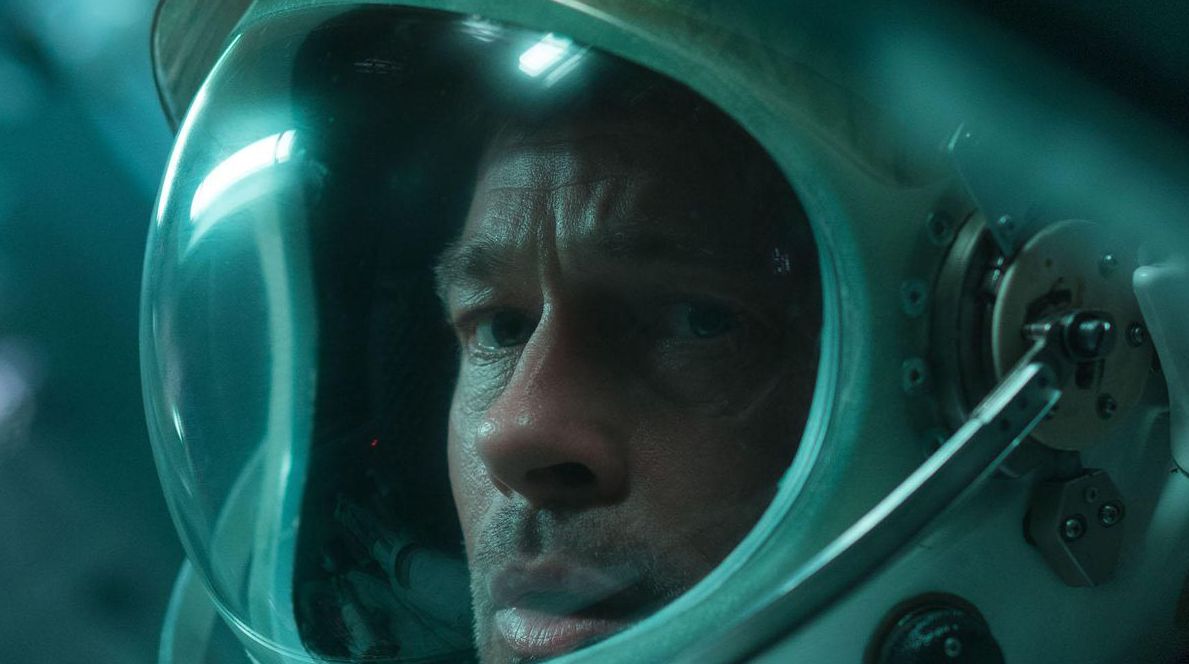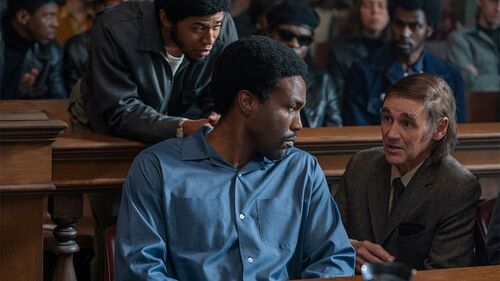
'Ad Astra' review
 I’ve calmed down a bit since I rushed out of my 'Ad Astra' screening to Twitter to all but declare it my film of the year. As the excitement simmered away and I organised my thoughts for this piece, sanity prevailed and ‘Ash is the Purest White’ resumed its place atop that list pending 'Joker' and 'The Irishman' and whatever surprises come my way.
I’ve calmed down a bit since I rushed out of my 'Ad Astra' screening to Twitter to all but declare it my film of the year. As the excitement simmered away and I organised my thoughts for this piece, sanity prevailed and ‘Ash is the Purest White’ resumed its place atop that list pending 'Joker' and 'The Irishman' and whatever surprises come my way.
Not quite the masterpiece it appeared to be in real-time, James Gray’s science-fiction adventure cuts a humbling cinematic experience – whisking me into a void and forcing me to bow to the disorienting emptiness of outer space that offers equal amounts of allure and terror. Suck in too much of the masterful Hoyte van Hoytema’s photography and the elegance morphs into the abyss we were warned about in the trailer.
'Ad Astra' is as much an interstellar thriller as it is a familial drama. It sees some philosophical discourse streamed through a heart-wrenching character study anchored by an understated gravitas gushing forth from Brad Pitt. One could argue 'Ad Astra' is also the most primal of ghost stories, only this spectre comes for most of the interplanetary system with a temporal fury.
It’s some years into the future and space travel has advanced far enough that the Americans have a colony on Mars. Hell, even the virus of capitalism has sunk its claws into the moon with a number of recognisable brands plastered about.
But all this is threatened by some mysterious power surges. Pitt’s astronaut character, Major Roy McBride, is at work on a giant space antenna when the first of these surges hits, launching a sequence that involves Roy leaping from the terrifyingly tall tower towards earth in the first of the film’s minimally conceived but somehow still spectacular action set pieces that also evoked 'Gravity'.
When the chaos dies down Roy learns his father, Clifford (Tommy Lee Jones), who was presumed dead along with the rest of his expedition decades ago, might be the cause of the surges that have caused the deaths of almost 50,000 people. Clifford had pushed the boundaries more than any other man on multiple levels. Not only had he reached as far as Neptune in search of alien life, but he also had the resolve to choose “purpose” over family; saying bye to a 16-year-old Roy in the process.
Roy seems to have followed in his father’s footsteps; excelling in his service to the U.S. Space Command with his fabled calmness under duress (his pulse never breaks 80bpm) but failing his wife and embracing solitude. The line between paternal inspiration and familial scars is blurred but Roy is gifted the hope of closure when he is given the task of travelling to Mars to try and establish contact with his father and possibly stop the surges which were sparked by an antimatter reaction.
Like most films these days, I went into 'Ad Astra' cold and after the screening, I watched the trailer and was surprised by how much plot it contained. I’ll hold off on much of the story even though the likening of space to the abyss and the numerous “cross between '2001' and 'Apocalypse Now'” tags may give one an indication of how the plot will unravel.
It’s a bit of a disservice to Gray to raise the bar to those Kubrick-Coppola levels. Aside a few feints here and there (and bearing in mind I still, criminally, haven’t seen '2001'), Gray is charting his own path, very much concerned with the fraught bond between a father and son, and the questions that arise forth – like if we are doomed to repeat our forbearers’ mistakes or pay for them. Roy’s journey is almost an ethereal reckoning that demands the kind of arduous spiritual untethering the initiated would have heard prophesied at a prayer meeting.
Roy is in need of some deliverance though. His disquiet and ice cool mastery of nerves can deflect for only so long. With each step towards his objective, his repressed angst bubbles to the fore; early on through his brooding narrations and also flashbacks tinged with regret to his now-estranged wife played by Liv Tyler. The sentiment then gushes forth in two excellent scenes later on that ambush us with overpowering emotion and vulnerability from Pitt, who overturns the vibe of the film without so much as lifting a finger.
The voice-over narration, I found, was a bit frustrating especially given Pitt was operating at a level of ungodly nuance. It also undercuts the sense of suffocating solitude and quiet that comes with being alone in the vast solar system. There is a clear line between a film like Claire Denis’s more eccentric and narratively superior and physiologically stimulating 'High Life'.
'Ad Astra’s' humanist core is, however, easier to grasp at and I imagine many a man will be moved to tears by the Freudian spices that ginger this story. Also, Gray offers more cinematic entertainment value than I expected with the introduction of space pirates, lunar shootouts, foreshadowing feral baboons at a point and zero gravity fight sequences.
Then there’s van Hoytema’s stellar visual sensibility that elevates the uneven Mars sequences to mesmerizingly rewatchable heights with its use of tactile reddish hues that drape over the breathtaking production design. And van Hoytema’s mesmerising wizardry on the canvas the orange-tinted visors of the astronaut's helmets presents is to die for.
I still expect 'Ad Astra' to feature in my top films of 2019. Gray has bared part of his soul to us and it invites tremendous amounts of empathy and may crucially offer some healing. As overwhelming as the spectacle is, Gray still trusts Pitt and his deft charisma to guide his vision and exploration on interiority home. It’s a testament not only Pitt's prowess but the power of a thespian's craft to strip everything away and invite the undivided gaze of the audience.


